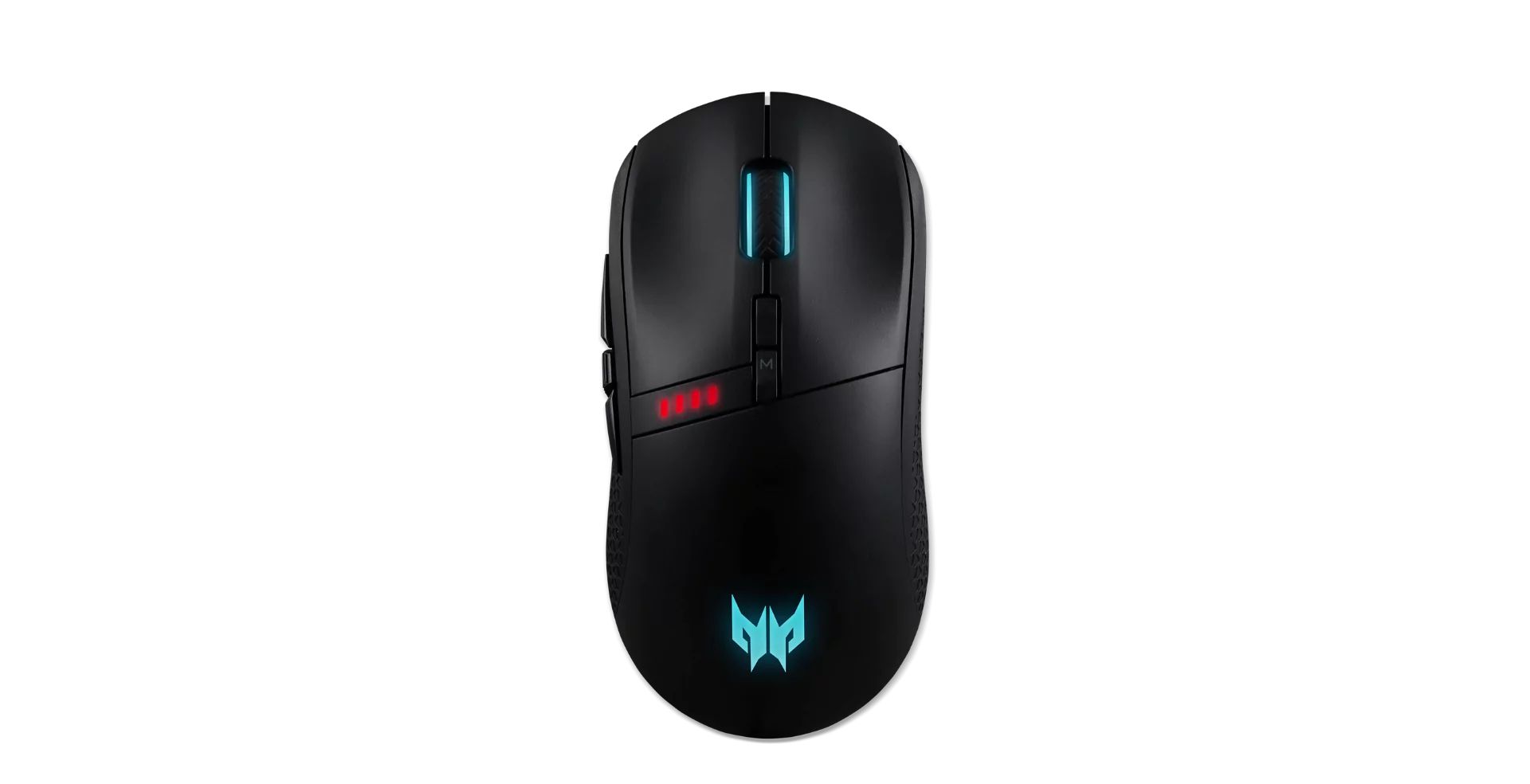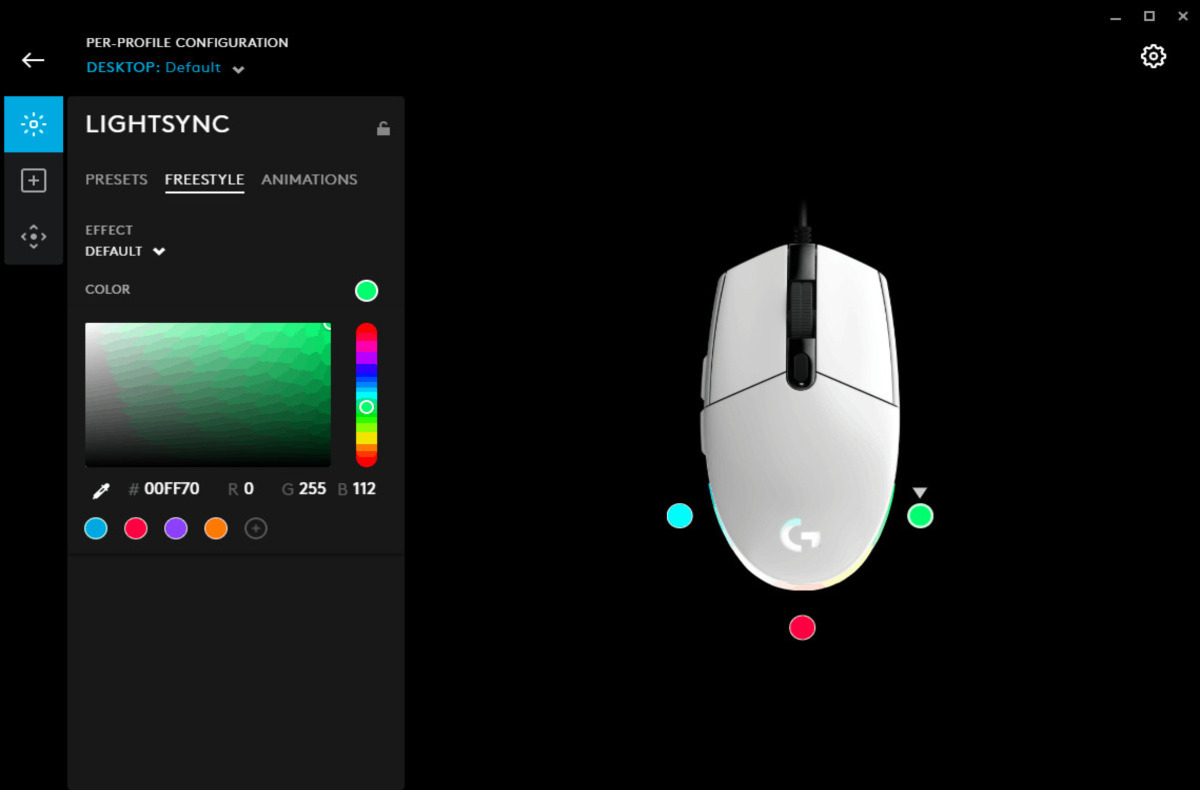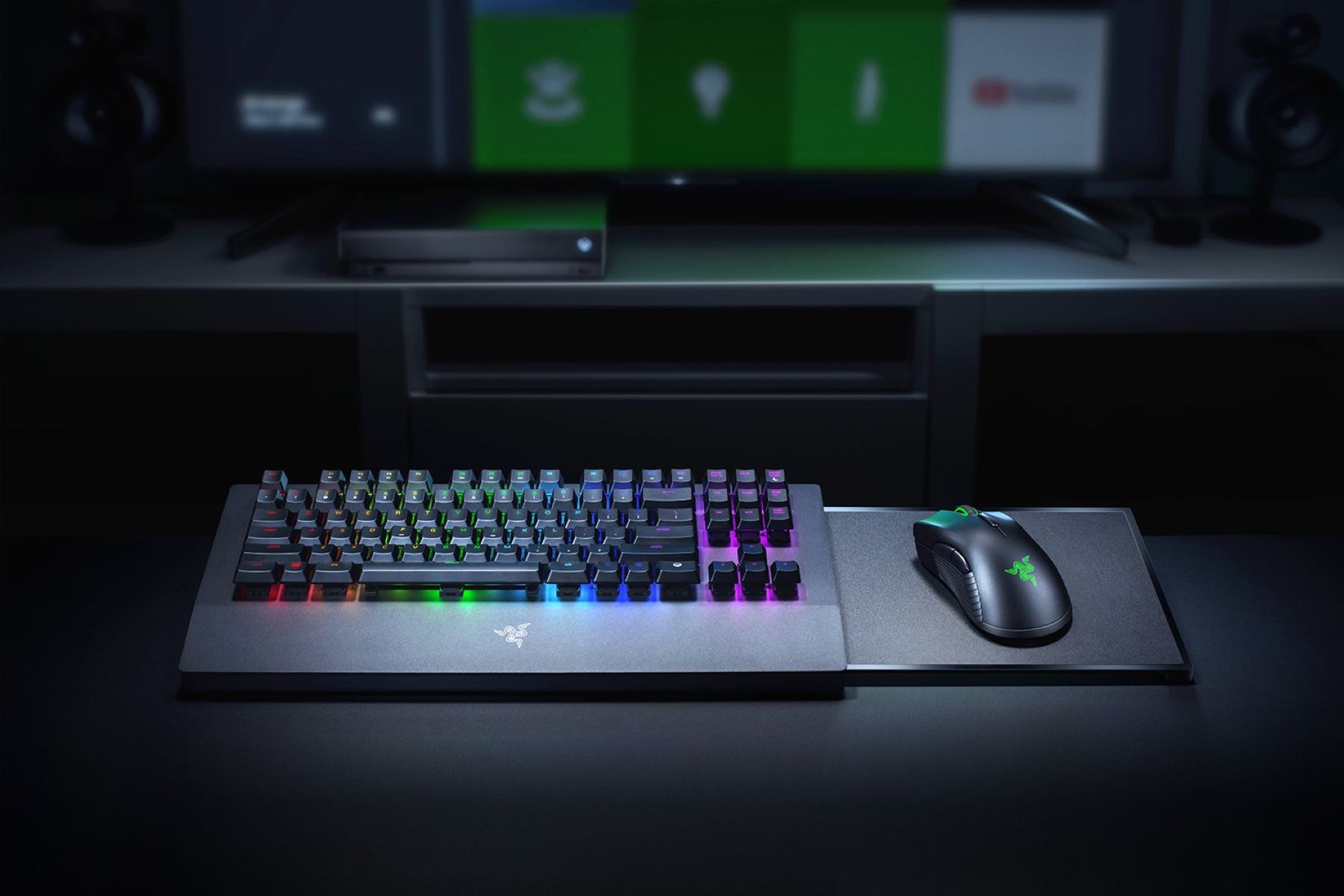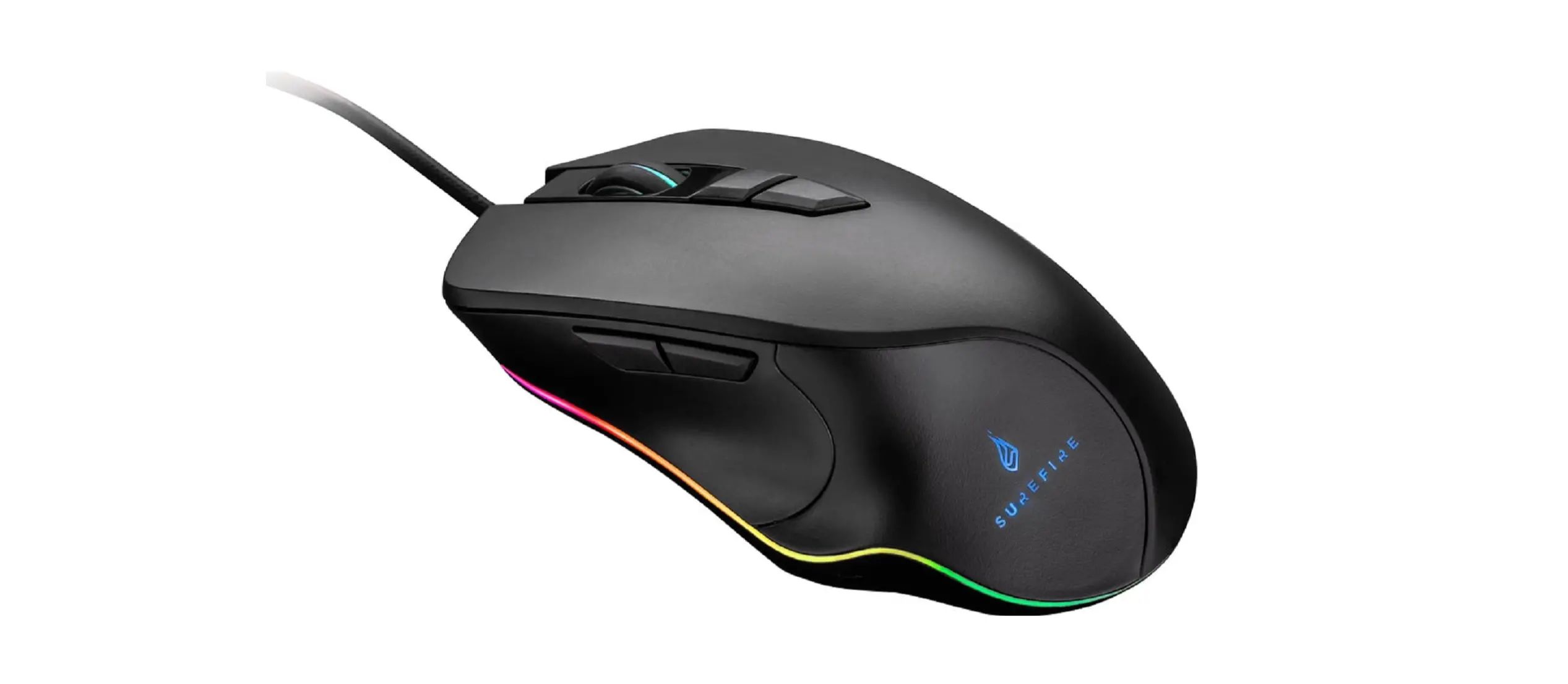Introduction
When it comes to gaming, every detail matters. From the speed of your graphics card to the responsiveness of your keyboard, every aspect of your gaming setup can impact your performance. One often overlooked factor is the weight of your gaming mouse. The weight of a gaming mouse can significantly influence your gaming experience, affecting your accuracy, speed, and overall comfort during extended gaming sessions.
As the gaming industry continues to evolve, the demand for lightweight gaming mice has surged. However, the question remains: How light should a gaming mouse be? Finding the optimal weight for a gaming mouse is a crucial consideration for gamers of all levels. Whether you're a casual player or a competitive esports enthusiast, the weight of your gaming mouse can make a substantial difference in your gameplay.
In this article, we'll delve into the significance of mouse weight in gaming and explore the various factors to consider when choosing the right mouse weight for your gaming needs. Additionally, we'll examine the pros and cons of both light and heavy gaming mice, providing insight into how each weight category can impact your gaming performance. By the end of this article, you'll have a comprehensive understanding of the role of mouse weight in gaming and be equipped with the knowledge to select the ideal gaming mouse for your gaming style. So, let's embark on this journey to uncover the impact of mouse weight on gaming performance and find the perfect balance for your gaming setup.
The Importance of Mouse Weight in Gaming
Mouse weight plays a crucial role in gaming, influencing a gamer’s precision, speed, and overall comfort during gameplay. The weight of a gaming mouse directly affects how a player maneuvers and controls it, impacting their ability to aim accurately and make swift, precise movements in-game. A well-balanced and appropriately weighted gaming mouse can significantly enhance a player’s performance, making it a pivotal component of a gamer’s arsenal.
For gamers, especially those engaged in fast-paced first-person shooter (FPS) or real-time strategy (RTS) games, the importance of mouse weight cannot be overstated. A lighter mouse allows for quicker and more agile movements, enabling players to react swiftly to in-game situations and maintain precise aim. On the other hand, a heavier mouse provides stability and resistance, which can be advantageous in scenarios requiring steady, controlled movements and precise targeting.
Moreover, the weight of a gaming mouse directly impacts the level of fatigue experienced during extended gaming sessions. A well-balanced mouse that aligns with a gamer’s preferred weight can reduce strain on the wrist and forearm, promoting comfort and preventing fatigue-related performance declines. This is particularly significant for professional gamers and enthusiasts who spend prolonged periods honing their skills in competitive gaming environments.
As the gaming industry advances, manufacturers are continually innovating to strike the perfect balance between weight and performance in gaming mice. The quest to develop lightweight yet durable gaming mice has become a focal point, driven by the understanding that mouse weight is a critical factor in a player’s overall gaming experience. With advancements in materials and design, gaming mice are now available in a range of weights, catering to diverse gaming preferences and playstyles.
Understanding the importance of mouse weight in gaming is fundamental for gamers looking to optimize their gaming setup. By recognizing the impact of mouse weight on precision, speed, comfort, and fatigue, players can make informed decisions when selecting a gaming mouse that aligns with their individual gaming needs and preferences.
Factors to Consider When Choosing the Right Mouse Weight
When selecting the ideal mouse weight for gaming, several factors come into play, each influencing the overall gaming experience. Understanding these factors is essential for gamers seeking to optimize their performance and comfort during gameplay. Here are the key considerations to keep in mind when choosing the right mouse weight:
- Gaming Genre: Different gaming genres demand varying levels of mouse agility and precision. For FPS and RTS games that require swift, precise movements, a lighter mouse may be preferable. Meanwhile, in MMO or MOBA games that prioritize stability and precise cursor control, a slightly heavier mouse could offer advantages.
- Hand Size and Grip Style: The size of a gamer’s hand and their preferred grip style significantly influence the ideal mouse weight. Gamers with larger hands may find heavier mice more comfortable to maneuver, while those with smaller hands might prefer lighter options. Additionally, players using palm grip, claw grip, or fingertip grip will have different preferences regarding mouse weight and balance.
- Customizability: Some gaming mice feature adjustable weights, allowing players to fine-tune the mouse’s weight to suit their preferences. This level of customizability can be advantageous, as it enables gamers to adapt the mouse weight to specific games or personal comfort levels.
- Mouse Sensitivity and DPI: The sensitivity and DPI (dots per inch) settings of a gaming mouse can affect how its weight feels during use. Higher sensitivity settings may necessitate a lighter mouse for precise control, while lower sensitivity settings might pair well with a slightly heavier mouse for improved stability.
- Longevity and Endurance: Durability and endurance are vital considerations when evaluating mouse weight. A well-constructed, lightweight mouse can provide extended comfort during prolonged gaming sessions, while a heavier mouse may offer enhanced durability and resilience to wear and tear.
By considering these factors, gamers can make informed decisions when selecting a gaming mouse that aligns with their unique gaming style and preferences. Understanding how each factor influences mouse weight and its impact on gameplay empowers players to optimize their gaming experience and elevate their performance.
Pros and Cons of Light Gaming Mice
Light gaming mice have gained popularity for their agility and swift responsiveness, offering several advantages that cater to specific gaming preferences. Understanding the pros and cons of light gaming mice is essential for gamers looking to assess their suitability for different gaming scenarios.
- Pros:
1. Agility and Swiftness: Light gaming mice excel in providing quick, nimble movements, ideal for fast-paced gaming genres such as FPS and RTS. Gamers can swiftly react to in-game situations and maintain precise aim with minimal resistance, enhancing their overall performance.
2. Reduced Fatigue: The lightweight nature of these mice can contribute to reduced wrist and hand fatigue during extended gaming sessions. This can be particularly beneficial for competitive gamers and enthusiasts who engage in prolonged gameplay sessions.
3. Enhanced Maneuverability: Light gaming mice offer enhanced maneuverability, allowing players to make rapid, precise movements with minimal effort. This can be advantageous in scenarios requiring quick reflexes and precise control over in-game actions.
- Cons:
1. Lack of Stability: The lightweight design of these mice can lead to reduced stability, especially for gamers who prefer a more anchored feel during gameplay. This lack of stability may impact precision in certain gaming scenarios that require steady, controlled movements.
2. Less Durability: In some cases, light gaming mice may be perceived as less durable compared to their heavier counterparts. The lightweight construction may be associated with a perception of reduced robustness, although advancements in materials and design have mitigated this concern to a considerable extent.
3. Adaptation Period: Transitioning to a light gaming mouse may require an adaptation period for some players, particularly those accustomed to heavier mice. Adjusting to the reduced weight and its impact on gameplay dynamics may necessitate time and practice.
By weighing the pros and cons of light gaming mice, players can evaluate their compatibility with specific gaming genres and individual gaming preferences. While light gaming mice offer agility and reduced fatigue, it’s essential to consider the potential trade-offs in stability and durability to make an informed decision based on one’s gaming style and requirements.
Pros and Cons of Heavy Gaming Mice
Heavy gaming mice, characterized by their substantial weight and robust build, present a distinct set of advantages and drawbacks that cater to specific gaming needs and preferences. Understanding the pros and cons of heavy gaming mice is essential for gamers seeking to assess their compatibility with different gaming scenarios.
- Pros:
1. Enhanced Stability: Heavy gaming mice provide a heightened sense of stability and control, which can be advantageous in scenarios that demand steady, precise movements. This stability is particularly beneficial in games where maintaining a consistent aim and cursor control is paramount.
2. Perceived Durability: The weight and solid construction of heavy gaming mice often contribute to a perception of enhanced durability. This can instill confidence in gamers, especially those seeking a long-lasting and resilient gaming peripheral.
3. Adaptability to Different Surfaces: The additional weight of heavy gaming mice can facilitate smoother tracking and adaptability to various gaming surfaces, offering consistent performance across different environments.
- Cons:
1. Reduced Maneuverability: The substantial weight of these mice may limit swift, agile movements, potentially impacting responsiveness in fast-paced gaming scenarios. Gamers may find it challenging to execute rapid, precise actions due to the resistance posed by the mouse’s weight.
2. Increased Fatigue: Prolonged use of heavy gaming mice can contribute to heightened wrist and hand fatigue, especially during extended gaming sessions. The additional effort required to maneuver a heavy mouse may lead to discomfort and reduced endurance over time.
3. Less Adaptability to Different Playstyles: Heavy gaming mice may be less adaptable to diverse gaming playstyles, particularly those emphasizing swift, dynamic movements. This limitation can impact a player’s ability to swiftly react to in-game events and execute precise actions.
By considering the pros and cons of heavy gaming mice, gamers can evaluate the suitability of these peripherals for their preferred gaming genres and individual playstyles. While heavy gaming mice offer stability and perceived durability, it’s crucial to weigh the potential trade-offs in maneuverability and fatigue to make an informed decision aligned with one’s gaming requirements.
Finding the Right Balance for Your Gaming Style
As gamers strive to optimize their gaming experience, finding the right balance in mouse weight is a pivotal consideration that directly impacts performance, comfort, and overall gameplay satisfaction. Each gamer’s unique playstyle, genre preferences, and physical attributes contribute to the individualized quest for the perfect mouse weight.
When seeking the ideal balance, gamers should consider the specific demands of their favored gaming genres. For fast-paced, precision-centric games such as FPS and RTS, a lighter mouse may offer the agility and swiftness required to excel in intense, action-packed scenarios. Conversely, gamers immersed in MMO or MOBA titles, where stability and precise cursor control are paramount, may lean towards a slightly heavier mouse for enhanced control and accuracy.
Hand size and grip style play a crucial role in determining the optimal mouse weight. Gamers with larger hands may find heavier mice more accommodating, providing a sense of solidity and control, while those with smaller hands might favor the maneuverability and agility offered by lighter options. Additionally, the preferred grip style—be it palm, claw, or fingertip grip—shapes the comfort and usability of a gaming mouse, influencing the ideal weight for each individual.
Customizability is another factor to consider, as some gaming mice feature adjustable weights, allowing players to fine-tune the mouse’s weight to suit specific games or personal comfort levels. This level of adaptability empowers gamers to tailor their mouse weight to match the demands of different gaming scenarios, providing a versatile solution to address diverse playstyles and preferences.
Furthermore, understanding the relationship between mouse sensitivity, DPI settings, and weight is crucial. Higher sensitivity settings may necessitate a lighter mouse for precise control and swift movements, while lower sensitivity settings might pair well with a slightly heavier mouse for improved stability and control. Balancing these factors can significantly enhance a player’s overall control and precision during gameplay.
Ultimately, the quest for the right balance in mouse weight is a deeply personal journey for every gamer. By considering the demands of their preferred gaming genres, hand size, grip style, customizability, and sensitivity settings, players can make informed decisions when selecting a gaming mouse that harmonizes with their gaming style and preferences.
Conclusion
As the gaming landscape continues to evolve, the significance of mouse weight in gaming has become increasingly evident. The weight of a gaming mouse directly influences a player’s precision, speed, comfort, and overall gaming performance. Understanding the nuanced interplay between mouse weight and individual gaming preferences is essential for selecting the perfect gaming mouse.
Light gaming mice offer agility, reduced fatigue, and enhanced maneuverability, making them well-suited for fast-paced gaming genres. However, the potential trade-offs in stability and perceived durability should be carefully weighed to align with specific gaming requirements and playstyles. On the other hand, heavy gaming mice provide enhanced stability, perceived durability, and adaptability to different surfaces, catering to gamers who prioritize control and precision. Yet, considerations regarding maneuverability, fatigue, and adaptability to diverse playstyles must be taken into account.
Finding the right balance in mouse weight involves a personalized evaluation of gaming genres, hand size, grip style, customizability, and sensitivity settings. Each gamer’s unique combination of preferences and physical attributes contributes to the quest for the perfect mouse weight, emphasizing the individualized nature of this pursuit.
Ultimately, the ideal mouse weight is a subjective determination, shaped by the intricate interplay of gaming preferences and physical characteristics. By considering the pros and cons of light and heavy gaming mice, as well as the factors influencing mouse weight selection, gamers can make informed decisions to optimize their gaming experience. Whether seeking agility and swiftness or stability and control, the quest for the perfect mouse weight is a vital aspect of crafting a gaming setup that aligns seamlessly with individual playstyles and preferences.
In the dynamic world of gaming, the quest for the optimal mouse weight continues to captivate gamers, driving innovation and diversity in gaming peripherals. As players navigate the myriad gaming experiences offered by different genres, the perfect balance in mouse weight remains an essential element in unlocking their full gaming potential.

























